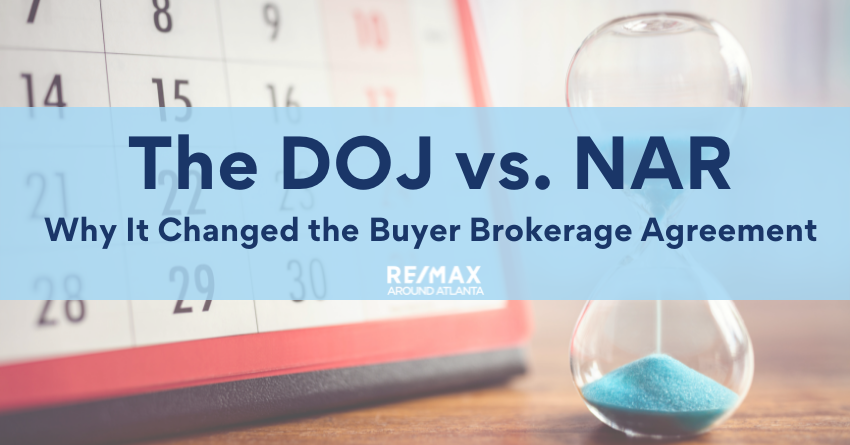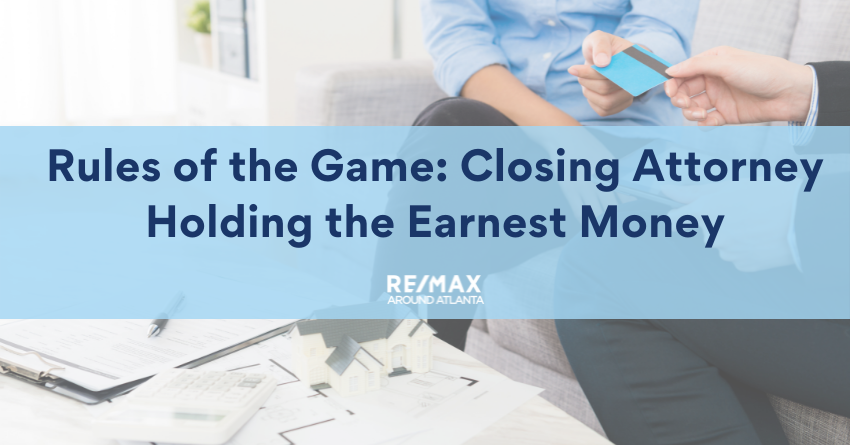|
The U.S. Department of Justice (DOJ) and the NAR are engaged in an ongoing lawsuit filed by the DOJ in November 2020. The DOJ alleges, among other allegations, that some NAR rules are illegal restraints on REALTOR competition. In particular, for this conversation, the DOJ alleges that NAR’s policies prohibit transparency to the consumer regarding buyer broker commissions.
The lawsuit has already gone through multiple phases, including a settlement and then withdrawal of the settlement, so it may take a while to conclude. However, transparency to the consumer regarding payment of commissions is likely going to become the nationwide rule. In an effort to conform to the eventual practice of full transparency, GAR has rewritten the commission section of the Buyer Brokerage Agreement in a way that complies with full transparency. Buyer Agent Services are Not Free The heart of the DOJ allegation is that the practice of agents saying or inferring that the buyer broker’s fee is free to the buyer because it is paid by the seller. The broker’s fee is in the purchase price so the buyer is paying. The new language clearly states the commission amount is owed by the buyer to the buyer’s broker and then clarifies that the full amount owed is “minus any commission paid to Broker by either the seller’s broker or the seller.” The new language also includes an acknowledgment that the commission, if any, being offered by the seller’s broker is usually set forth in the multiple listing service in which the property is listed. When buyers want to see properties that offer less commission than agreed in the Buyer Brokerage Agreement, they need to understand that the difference in commission will be owed by them if that property is purchased. Both FMLS and GaMLS require the Buyer broker’s commission to be disclosed in the listing, so they are already operating with transparency and the commission to be paid is known. Sometimes the seller or seller’s agent does not list in the multiple listing services, such as some builders. Investigation will be needed, so that your buyer – and you - know the facts. Emphasize the Value You Bring This change reflects what may be the start of an eventual shift in how real estate brokers working with buyers are paid. Buyer’s brokers will need to be able to more clearly articulate the value of the services they perform to their buyer clients. Great agents that are prepared to demonstrate their services as both valuable and necessary, will continue to thrive!
5 Comments
Timelines & Deadlines
Real estate licensees are familiar with deadlines and time frames involved in real estate transactions as well as those required to manage a real estate license. The Georgia Real Estate License Law, Rules and Regulations require compliance with critical time periods and deadlines. Many of these deadlines are necessary only in unusual situations, and some of them may not be required at all if the circumstances never occur. The following is a list of important time periods required by the Georgia License Law, Rules and Regulations:
Two questions have recently come up concerning the Conventional Loan Contingency Denial Letter and Appraisal.
Question 1: Where there is a conventional loan contingency exhibit, if the appraisal has not been completed prior to the end of the appraisal & finance contingency, can the buyer terminate the contract with a loan denial letter, based upon the reason "insufficient property data?" Answer Use of Approved Lender and Loan Denial Letter was expanded in the 1/1/2022 printing to include new sections (e) and (f), reasons upon which a loan denial letter may not be solely based: (e) the Property not appraising for at least the purchase price unless this Agreement is subject to an appraisal contingency and an appraisal meeting the requirements of this Agreement has been performed; or (f) the lender not having completed underwriting the loan request. Therefore, an appraisal not being completed is not a valid reason for a denial letter during the finance or appraisal contingency. So, if an appraiser hasn’t met a loan deadline, the buyer cannot use that as a sole basis for a loan denial letter. It is not considered “insufficient property data.” Question 2: Where there is an “Approved Lender” included in paragraph 2 and the buyer chooses to use a non-approved lender, can a low appraisal ordered by the non-approved lender’s appraiser trigger the buyer’s remedies for a low appraisal in paragraph 11? That is, would the buyer still be able to ask the seller for a price reduction or terminate the contract per the Appraisal Contingency? Answer: The simple answer is yes. The forms committee intended that a buyer could ask for a reduction based on a low appraisal from an appraiser selected by any Lender, not just an “Approved Lender.” The buyer loses the ability to use a loan denial letter from a non-approved lender, but the buyer’s right to ask for a reduction in price or termination for a low appraisal stands – even if it is from the non-approved lender’s appraiser. Every Transaction Requires the ABAD
The Affiliated Business Arrangement Disclosure (“ABAD “) is a required RMAA document for all clients and customers for every transaction. This requirement is based directly on regulations of the Federal Consumer Protection Bureau, RESPA and Georgia License Law. No transaction can be completed without an executed ABAD in the file. According to Georgia License Law, it is an Unfair Trade Practice to receive anything of value for the referral of any service or product in a real estate transaction to a principal. GA Code 43-40-25-b-6 (C). The ABAD is the document that complies with this requirement. The current ABAD can be found both in the RMAA HUB under Resources Library > Office Forms and Documents > Affiliated Business Arrangements Disclosure. It can also be found in Remine when the RMAA “Package” is selected. Because vendors may change with time, the form is updated as needed. The current version of the ABAD was updated in September 2021. The previous form is no longer valid. Even if a transaction falls through, the ABAD is required. According to a 2009 decision from the US Supreme Court, just as a violation of the rights of “testers” in fair housing test cases to receive “truthful information” supports standing, so does a violation of the right to receive referrals untainted by conflicts of interest. So, even if a deal falls through, the ABAD is still required to be in the file! Separate from the required ABAD, vendors may be recommended that may not live up to expectations. GAR has provided a document that offers protection to agents in the referral of a vendor. GAR F834 can be very useful and should be considered as an additional document in transactions. It includes the following language. Furnishing of any names of vendors provided by Broker or Broker's Affiliated Licensee is done as a ministerial act and only as a courtesy to the undersigned and does not in any way constitute any warranty or representation as to the quality of the vendors, their services or subsequent reports. The undersigned acknowledges that they had the option to select any vendor of their choice and that the Broker is not responsible for any guarantees, representations, or warranties of the selected vendors they choose. For good and valuable consideration, the undersigned herewith releases the Broker and the Broker's Affiliated Licensee from any liability or claim arising out of or in connection with the services of vendor. |
RMAAReal Estate News, Brokers Blog & More Categories
All
Archives
July 2024
|





 RSS Feed
RSS Feed